Pay-per-click (PPC) advertising has grown more competitive over the years. The average cost of Google Ads clicks now ranges from around $5, while leads can cost $70 or more. This makes keyword planning more important than ever. In this guide, we will cover six of the best keyword research tools for paid search that can make your campaigns more profitable and easier to manage.
Why Keyword Tools Matter in PPC
Keywords are the foundation of every ad campaign. Choosing them wisely means reaching people who are ready to buy, not just browse. Advertisers often waste budget on irrelevant clicks or overly broad searches without the right platform.
You can find high-intent terms, filter out weak searches, and create a balanced keyword list by using tools or competitor research platforms. When you do this, you not only save money but also improve CTRs, which average around 6.7% across industries. The right tools keep your ad spend focused where it matters most.
1. Google Ads Keyword Planner
Google Ads keyword research software is one of the most trusted resources for advertisers. It provides search volume data, competition levels, and cost-per-click estimates directly from Google. You can explore related searches, get forecasts, and even test how much traffic you might gain from specific keywords.
A big advantage is the integration with Google Ads accounts. You can move keyword ideas into campaigns within minutes. It also helps set realistic budgets by comparing bids with average CPCs.
Best for: Campaign planning and budgeting.
Pro tip: Use “Search terms insights” to quickly identify negative keywords that drain spend.
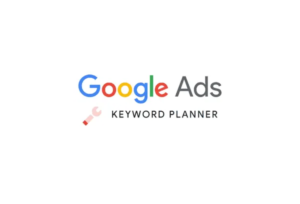
2. Microsoft Advertising Keyword Planner
Microsoft’s keyword planner is often overlooked, but it can be a goldmine. Bing’s network reaches 88% of internet users, and many advertisers report lower CPCs compared to Google. This makes it one of the best tools for stretching ad budgets.
It works similarly to Google’s tool, showing volumes, CPCs, and competition levels. Since Bing tends to attract slightly older and more professional audiences, it can be great for B2B businesses or high-value products.
Best for: Expanding reach at lower costs.
Pro tip: Compare your Bing keyword data with Google to find gaps or cheaper opportunities.

3. Semrush PPC Keyword Tool
Semrush is widely recognized for its SEO capabilities, but its PPC features are also highly effective. The performance marketing keyword research tool lets you create massive keyword lists, remove duplicates, and group terms by themes. You can also generate negatives in bulk, which keeps your campaigns clean and efficient.
This tool saves hours of manual work for advertisers who are managing multiple campaigns. It also provides cost and volume estimates, helping you prioritize which keywords are worth testing.
Best for: Structuring campaigns and maintaining clean keyword lists.
Pro tip: Run reports regularly to prune wasteful terms and keep CPCs under control.
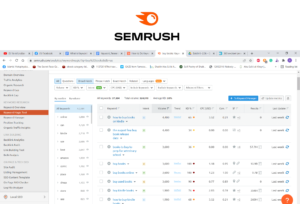
4. SpyFu
SpyFu is a favorite for competitor research because it uncovers the hidden details behind rival campaigns. Its Ad History feature shows which keywords competitors have invested in for months, a clear signal that those terms are profitable.
Along with ad copy and landing page examples, SpyFu gives advertisers practical insights they can use right away. These insights help refine targeting, confirm search demand, and guide smarter bidding decisions when paired with search intent data in Google Ads. SpyFu also flags abandoned terms, which usually means high costs or poor conversion rates.
Best for: Competitor keyword and ad copy insights.
Pro tip: Test competitor-proven terms with small budgets before scaling.
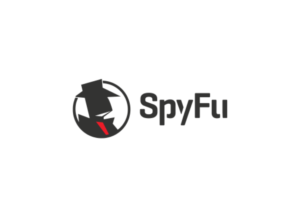
5. Ahrefs Paid Keywords
Ahrefs has expanded beyond SEO to become a strong advertising partner. Its Paid Keywords tool shows you which keywords drive traffic for competitors and reveals their actual ads. Filtering by traffic and cost is easier than ever with version 3.0.
This means you can see not just what keywords bring traffic, but which ones are worth the spend. You can avoid wasting money on untested ideas by focusing on terms that already bring results for others. For better accuracy, many advertisers compare Ahrefs data with Google Ads Keyword Planner to validate search volumes and CPC ranges.
Best for: Spotting competitor traffic drivers.
Pro tip: Use this tool alongside Google Ads Tools for validation.
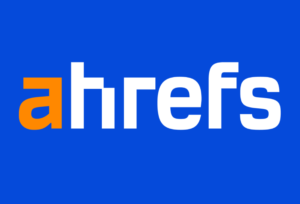
6. Similarweb
Similarweb provides a bird’s-eye view of paid campaigns. It lets you see which keywords dominate your industry, how much competitors are spending, and what share of traffic comes from specific searches.
This market-level data is helpful if you are planning a budget for a competitive space. Instead of guessing, you can see exactly where other advertisers focus their spending.
Best for: Market analysis and budget planning.
Pro tip: Great for industries with high CPCs where competition is tight.
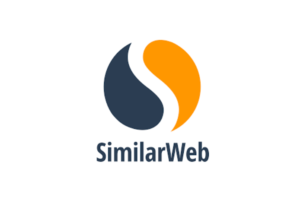
Comparison Table
| Tool | Strengths | Best Use Case |
| Google Ads Keyword Planner | Accurate volumes & forecasts | Planning campaigns and budgets |
| Microsoft Keyword Planner | Cheaper CPC options | Expanding reach on Bing |
| Semrush PPC Tool | List cleanup and negatives | Managing large campaigns |
| SpyFu | Competitor ad history | Finding profitable terms |
| Ahrefs Paid Keywords | Traffic-focused competitor data | Testing proven terms |
| Similarweb | Market-level analysis | Budgeting in competitive niches |
Frequently Asked Questions
Google Ads Keyword Planner is simple, free, and easy for beginners to use. It helps with budgeting, keyword discovery, and building starter campaigns.
At least once a month, but weekly checks are better. Regular reviews help avoid wasteful terms and add new profitable searches as trends change.
Yes, many advertisers do this. Microsoft often shows cheaper CPCs and different keyword trends that you can test on Google later.
They save your time and money. Instead of guessing, you can see what keywords drive results for others and test those proven terms.
No tool guarantees success, but they reduce guesswork. With clearer data, you make smarter choices and improve ROI over time.
Wrapping Up
The choice of keyword research tooldepends on your needs. If you want basic planning, Google Ads Keyword Tools are ideal. For cheaper CPCs, try Microsoft’s planner. Semrush is great for structuring lists, while SpyFu and Ahrefs uncover competitor strategies. Similarweb is best for market-wide insights.By combining two or three of these top 6 digital advertising keyword tools, you can improve your ad campaigns, reduce wasted clicks, improve ROI, and keep ad costs under control. At iClick Advertising, we use these proven tools every day to help businesses get more from their ad spend.Ready to find the best keywords for your ads? Book a strategy call today and discover how we elevate your campaigns.





